Showing 2413–2424 of 2508 resultsSorted by popularity
-
Sale!

Dovyalis Caffra Tree (Kei Apple) 20lt
All Plants, Full Sun Plants, Hedging Plants, Indigenous Plants, Semi Shade Plants, Water Wise PlantsOriginal price was: R550.00.R350.00Current price is: R350.00.Add to cartDovyalis Caffra Tree 20lt
Common Name: Kei AppleFull Sun
Semi Shade
Evergreen
medium Watering
Indigenous
Hedging PlantDovyalis caffra, commonly known as the Kei Apple or Kaffir Plum, is a small to medium-sized tree native to southern Africa. It belongs to the Flacourtiaceae family. The Kei Apple is valued for its edible fruits and is also cultivated as an ornamental plant.
Appearance: The Kei Apple is an evergreen tree with a dense, rounded crown. It can grow up to 4-6m in height and has thorny branches.
Leaves: The leaves are glossy, dark green, and elliptical in shape, with prominent veins. They are often serrated or toothed along the edges.
Flowers: The tree produces small, inconspicuous, and greenish-yellow flowers that are not particularly showy. They are typically dioecious, meaning male and female flowers are borne on separate trees.
Fruits: The Kei Apple is most known for its plum-sized, round to ovoid fruits, which are edible and have a sweet and tangy flavour. The fruits ripen to a yellowish colour when fully mature and can be eaten fresh or used to make jams, jellies, and sauces.
Growth Requirements: Dovyalis caffra prefers well-draining soil and can tolerate a range of soil types. It grows best in full sun but can also tolerate partial shade. The tree is relatively drought-tolerant once established, but regular watering can help improve fruit production.
Wildlife Attraction: The fruits of the Kei Apple are not only enjoyed by humans but also attract birds and other wildlife, making it a valuable addition to gardens and landscapes that support local biodiversity.
Uses: Apart from its culinary uses, the Kei Apple is sometimes used as a hedge or barrier plant due to its thorny nature. In some regions, the tree is also used for erosion control.
-
Sale!
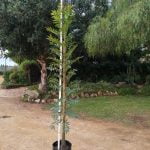
Ekebergia Capensis 20lt
Original price was: R550.00.R399.99Current price is: R399.99.Add to cartEkebergia Capensis 20lt
Common Names: Cape Ash, Dogplum, EssenhoutFull Sun
Low Watering
Indigenous
Evergreen
Drought Tolerant When EstablishedEkebergia capensis, commonly known as the Cape ash or African ash, is a tree species native to South Africa.
Habitat: Ekebergia capensis is found in various parts of South Africa, including the Cape Peninsula, Eastern Cape, KwaZulu-Natal, Mpumalanga, and Limpopo. It typically grows in woodland and forest habitats, often near rivers or in moist areas.
Description: It is a medium-sized to large deciduous tree that can reach heights of up to 20 meters. The tree has a dense, rounded crown and a straight trunk. The bark is greyish-brown and becomes rough and fissured as the tree matures. The leaves are compound, with leaflets arranged in pairs, and they are shiny dark green in colour.
Flowers and Fruits: Ekebergia capensis produces small, creamy-white flowers in dense clusters. The flowers are fragrant and attract bees and other insects for pollination. After pollination, the tree develops small, round fruits that turn purple when ripe. The fruit contains a single seed and is edible, but not commonly consumed by humans.
Uses: Ekebergia capensis has several uses in traditional medicine and cultural practices. Various parts of the tree, such as the bark, leaves, and roots, are used for their medicinal properties. The wood is durable and used in construction, furniture making, and for fuel. The tree also has some cultural significance and is often planted as an ornamental tree in gardens and public spaces.
Conservation status: Ekebergia capensis is not currently listed as a threatened species. However, like many tree species, it can face threats from habitat loss, deforestation, and invasive species. Conservation efforts are important to preserve the natural habitats where this tree species occurs.
-
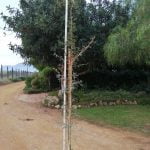
Acacia Burkei 20lt (Black Monkey Thorn)
R495.00Add to cartAcacia Burkei 20lt
Common Name: Black Monkey ThornApprox 2.2m Tall
-
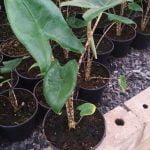
Alocasia Zebrina 14cm Pot
R275.00Add to cartAlocasia Zebrina 14cm Pot
Water well when needed.
Loves bright sunlight but not direct sun on the leaves or they will burn.
Turn weekly to prevent stems from growing towards to the sunlight. -
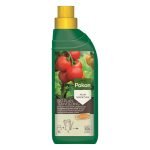
Pokon – Biofeed 500ml
R165.00Add to cartPokon – Biofeed 500ml
Pokon Bio Plant Food is a natural plant fertiliser. It is suitable for all pot plants, both indoors and on terraces and balconies. This natural fertiliser provides your plants with the nutrients they need and stimulates soil organisms. Optimum growth of your pot plants guaranteed!
Solution of NPK fertilisers: 4-1-5.
-
Sale!
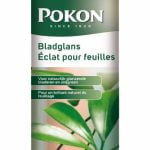
Pokon Leafshine 600ml
Original price was: R500.00.R389.99Current price is: R389.99.Add to cartPokon Leafshine 600ml
Leafshine is an easy, instant, non-messy quick drying formula that gives a natural long lasting shine to pot plants and cut foliage in bouquets.
Operating instructions
Shake before use
Spray the top of the leaves at approximately 35 cm. distance with rotating movement until the desired gloss effect is achieved
Keep upright during spraying
Repeat this treatment every month
Caution: Do not spray in direct sunlight. Avoid spraying on furniture, walls, and – to prevent slipping – floors.Period
Pokon Journal Gloss can be applied throughout the year. -

Pokon Leafshine 250ml
All Indoor Plants, All Plants, Hanging Plants, Indoor Plants On Sale, Other Indoor Plants, Pokon RangeR225.00Add to cartPokon Leafshine 250ml
Leafshine is an easy, instant, non-messy quick drying formula that gives a natural long lasting shine to pot plants and cut foliage in bouquets.
Operating instructions
Shake before use
Spray the top of the leaves at approximately 35 cm. distance with rotating movement until the desired gloss effect is achieved
Bus keep upright during spraying
Repeat this treatment every month
Caution: Do not spray in direct sunlight. Avoid spraying on furniture, walls, and – to prevent slipping – floors. Plants after treatment not pack up immediately. Extremely flammable aerosol.Period
Pokon Journal Gloss can be applied throughout the year. -
Sale!
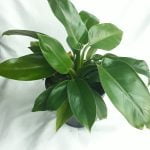
Philodendron Imperial Green 19cm Pot
Original price was: R395.00.R249.99Current price is: R249.99.Add to cartPhilodendron Imperial Green 19cm Pot
Common Name: Sweetheart PlantBright Indirect Light
Morning Sun
Medium Watering (allow top of soil to dry out completely)
Feed Monthly -
Sale!

Delicious Monster 19cm Pot
Original price was: R375.00.R195.00Current price is: R195.00.Add to cartDelicious monster 19cm Pot
-
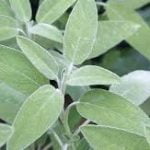
-
Sale!
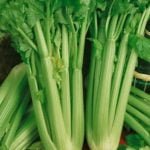
Celery 6 pack
Original price was: R60.00.R49.99Current price is: R49.99.Add to cartCelery 6 pack
Growing your own vegetables offers numerous benefits, both for your health and overall well-being. Here are some of the key advantages of cultivating your own vegetables:
1. Nutritional Value: Homegrown vegetables are incredibly fresh and packed with essential nutrients. They are harvested at their peak, ensuring optimal nutritional value. You have control over the cultivation methods, allowing you to avoid pesticides or other harmful chemicals.
2. Health and Wellness: Consuming homegrown vegetables promotes a healthier lifestyle. They are typically richer in vitamins, minerals, and antioxidants, which can boost your immune system, improve digestion, and lower the risk of chronic diseases such as heart disease and certain cancers.
3. Cost Savings: Growing your own vegetables can save you money in the long run. The initial investment in plants, soil, and tools may be modest, and the ongoing expenses are significantly lower compared to purchasing fresh produce from the market. Plus, you can grow a variety of vegetables at a fraction of the cost of buying them.
4. Taste and Flavour: Homegrown vegetables often have superior taste and flavour compared to store-bought produce. You can pick them at the peak of ripeness, allowing you to savour the true essence of each vegetable. The freshness and flavours of your homegrown vegetables can enhance your culinary experiences.
5. Environmental Sustainability: Cultivating your own vegetables promotes sustainable practices. By growing your food locally, you reduce the carbon footprint associated with long-distance transportation, packaging waste, and the use of harmful chemicals. Additionally, you can compost kitchen scraps and organic waste, minimizing landfill contributions.
6. Physical Activity and Stress Relief: Gardening is an excellent form of physical activity. It involves various tasks like digging, planting, weeding, and harvesting, which can provide exercise for your body. Engaging in gardening activities can also be therapeutic, reducing stress, anxiety, and promoting relaxation.
7. Educational and Skill Development: Growing your own vegetables offers a valuable learning experience for both children and adults. It allows you to understand the importance of sustainable agriculture, appreciate the effort involved in food production, and gain knowledge about plant biology and gardening techniques. It can also encourage a sense of responsibility and patience.
8. Food Security: Having your own vegetable garden contributes to food security. It provides you with a reliable source of fresh produce, reducing dependence on external suppliers. In times of emergencies or disruptions in the food supply chain, you can rely on the sustenance from your homegrown vegetables.
9. Aesthetics and Connection with Nature: Growing vegetables adds beauty to your surroundings. A well-maintained garden can enhance the aesthetics of your home and create a peaceful environment. It allows you to reconnect with nature, appreciate the seasons, and gain a sense of accomplishment.
Overall, growing your own vegetables offers a multitude of benefits, including improved nutrition, cost savings, environmental sustainability, physical activity, and a deeper connection with nature. It’s a rewarding endeavour that can positively impact your health, well-being, and overall quality of life.
-

